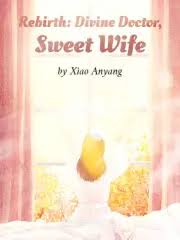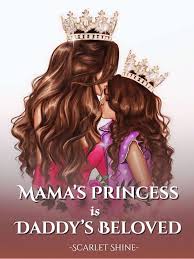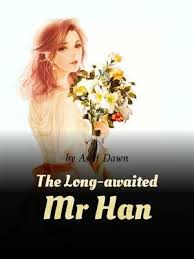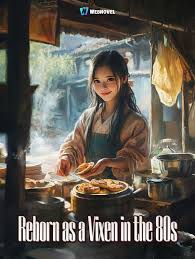The Story in 3 Sentences
In her first life, Gu Qingyao longed for Mo Beihan but never found the courage to act on her feelings, leaving their love unfulfilled.
Reborn into the past with a mystical interspatial item, she resolves to win his heart with boldness, wealth, and clever planning, unaware he too remembers everything.
As both navigate rural 1970s China with secret past-life knowledge, their mutual devotion deepens into a tender, protective partnership that defies societal hardship and familial sabotage.
Why It Stands Out
1. Dual Rebirth, Zero Miscommunication
Unlike most reincarnation romances where only one lead remembers the past, both Gu Qingyao and Mo Beihan return with full memories yet choose to play coy, creating a rare dynamic of mutual yearning without unnecessary drama. Their shared secret becomes a quiet foundation for trust, not tension.
2. 1970s Rural China as Romantic Backdrop
Set against the austere realities of post-revolutionary Chinese countryside life, the novel uses historical texture—ration coupons, collective farms, political stigma—not as grim realism but as a canvas for warmth. The scarcity of the era makes their generosity toward each other feel lavish, turning simple acts like sharing a sweet potato into declarations of love.
3. Subspace Meets Slice-of-Life
While interspatial storage is a staple of xianxia cultivation novels, here it’s repurposed for domestic joy: Gu Qingyao stocks medicine, fabric, and gourmet ingredients to heal neighbors, clothe loved ones, and cook feasts. This fusion of fantasy utility with grounded, everyday care redefines what “power” means in romance—nurturing, not conquering.
Characters That Leave a Mark
There’s Gu Qingyao – a reborn woman whose quiet strength lies not in vengeance but in rebuilding, using her knowledge and resources to shield her father, outmaneuver her scheming mother and sister, and quietly elevate her community without fanfare.
You’ll meet Mo Beihan, who masks his past-life grief with playful charm, arriving with mountains of gifts and a vow to spoil Gu Qingyao endlessly, yet reveals fierce protectiveness when threats emerge from their shared history.
And Qiao Yuxi? They’re the one who serves as a sharp-tongued but loyal friend to Gu Qingyao, offering both comic relief and unwavering support during family confrontations, embodying the novel’s theme that chosen kinship can heal generational wounds.
The Flaws Fans Debate
Many readers criticize the novel’s heavy focus on food preparation, economic details, and inventory lists, with some claiming over 75% of chapters read like culinary logs or supply-chain reports rather than advancing the romance or plot .
Others note that numerous side characters introduced early—especially potential love interests in subplots—are abandoned without resolution, leaving narrative threads dangling by the final chapters .
The ending itself is cited as abrupt and inconclusive, with no clear epilogue or closure for secondary arcs, leading fans to speculate whether the author intended spin-offs that never materialized .
Must-Experience Arcs
Ch. 1–50: Rebirth and Reunion – Gu Qingyao awakens in her teenage body, immediately begins using her interspatial storage to secure medicine and goods, and re-encounters Mo Beihan, who recognizes her instantly but pretends otherwise to test her intentions.
Ch. 300–500: Dowry and Defiance – She orchestrates an elaborate public proposal by amassing a legendary dowry, shaming her greedy relatives while winning village admiration; Mo Beihan counters with even grander gestures, turning their courtship into a spectacle of mutual devotion.
Ch. 1200–1451: Shadows of the Past – A hidden enemy from their previous lives resurfaces, attempting to fracture their alliance with the Gu, Qiao, and Qin families; the couple deploys both strategic cunning and medical expertise to expose the plot and secure lasting peace .
Killer Quotes
“Marry me, Yaoyao! You will have limitless pocket money, an endless supply of snacks, and more beautiful clothes than you can wear!”
“Before the rebirth, I wanted to marry you but didn’t dare. Now, I’ll make sure the whole world knows you’re mine.”
“In this life, I won’t let fear steal a single moment we’re meant to share.”
Cultural Impact
The novel sparked a mini-trend in English-translated web fiction for “dual-rebirth” romance, inspiring dozens of imitators on platforms like Webnovel and Dreame.
Fans coined the term “Yaoyao Economics” to jokingly describe the protagonist’s uncanny ability to calculate grain yields, spice blends, and fabric costs with divine precision.
With over 8 million readers and consistently high ratings (4.57/5 from 209 reviews), it became a flagship title in Webnovel’s historical romance catalog, often featured in “Trial Read” promotions .
Final Verdict
Start Here If You Want:
A low-drama, high-fluff romance where both leads are emotionally mature and actively choose each other from day one.
A vivid, nostalgic immersion into 1970s rural Chinese life, softened by fantasy elements and heartfelt community bonds.
Wholesome power fantasy where the heroine’s “superpower” is care—cooking, healing, and protecting—not combat or scheming.
Study If You Love:
Narratives that repurpose xianxia tropes (like interspatial storage) for domestic storytelling, challenging genre boundaries between cultivation and slice-of-life.
Explorations of how historical trauma can be healed through intimate, reciprocal relationships rather than grand political gestures.
Gender dynamics in post-Mao China as refracted through a feminist lens—Gu Qingyao asserts autonomy not by rejecting tradition, but by mastering and reshaping it.
Avoid If You Prefer:
Fast-paced plots with constant external conflict; this novel thrives on slow-burn domesticity and emotional nuance.
Stories where romance is the sole focus; here, economics, food culture, and family politics occupy equal narrative space.
Tightly edited prose; the repetitive detailing of meals, materials, and market prices may feel excessive to readers seeking lean storytelling.





